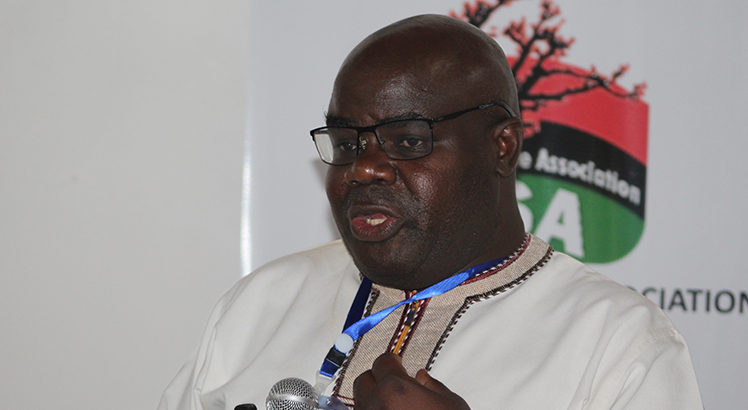When poverty benefits politicians
Malawi is touted as a bastion of progressive policies aimed at reducing poverty, but a global specimen of false starts and suspenseful ends on the listings of human development.
Poverty levels keep rising as the paperwork policymakers churn out keep piling.

According to the United Nations Economic Commission for Africa (Uneca), Malawi is one of the three countries with the highest poverty levels among its workforce.
According to the UN commission, slightly over seven of Malawians with employment are poor.
This implies that their employment-related incomes are not sufficient to lift them and their families out of poverty and provide decent living conditions.
The Malawi Poverty Outlook published by the World Bank in April slashed Malawi’s growth prospects from 1.6 percent to 1.4 percent in 2023.
The Bretton Woods institution further projects that poverty levels will increase from 71 to 72 percent in 2023, warning that the population living below the international poverty line of $2.15 (about K2 280) per day could increase.
This paints a gloomy picture of the country which entered the global decade of action to end poverty with more than half of its population stuck in poverty and a quarter living in abject poverty.

Analysts fault the country’s political leadership for lacking commitment to turning the fortunes of the citizenry despite glowing political promises.
They argue that instead of concentrating on solving national challenges, the political elites are obsessed with enriching themselves while the poor get poorer.
Although politicians are elected to make pro-poor policies work, they drive policies that work to their benefit.
Boniface Dulani, political scientist based at the University of Malawi, accused the political elites of benefiting from widespread and deep-rooted poverty.
“Poverty gives them an easy platform to campaign on and enrich themselves,” he says.
Dulani cites rampant corruption among political leaders and failure to fully implement the national development agenda as a symbol of zero commitment to eliminate poverty.
In the last 25 years, Malawi has failed to meet development yardsticks outlined in the Vision 2020, Poverty Reduction strategies; Millennium Development Goals and a series of Malawi Growth and Development Strategies.
As the countdown to Malawi 2063 continues, Dulani warns: “Given our record in speaking too much but doing very little, one would have to be brave to bet that there is light at the end of our dark tunnel of poverty for the foreseeable future.”
He decried low commitment to create jobs and invest in sectors likely to spur growth and increase incomes.
The analyst says: “Our dependence on subsistence and rain-fed agriculture is not efficient as it makes us vulnerable to the whims of nature.
“It also does not help that we have very poor infrastructure, for example, roads, electricity, and no decent rail network.”
Dulani thinks investing in the people by, among others, prioritising investment in health care, education and research and growing the country’s economy through investment in commercial agriculture, having a favourable tax regime, and serious investments in road, rail and electricity can help bail Malawi out of the grip of poverty.
“As a people, we need to get angry with our poverty and we should turn this anger to pressure political and other leaders to take serious measures to change the status quo,” he says.
However, Dulani warns that ending poverty is not a government responsibility alone.
“Ordinary citizens too have a role to play,” he says. “We need to avoid an attitude of fatalism and act on what we can do to change our situation instead of leaving everything to fate, government or even God! We need to work harder and smart. We also need to learn to work with others in joint ventures, including in agriculture, which is currently the backbone of our economy.”
Concurring, political analyst Victor Chipofya urges politicians to increase investiment in ensuring every Malawian gets quality lifelong education.
The Department of Economic Planning listed quality education among the strategies to ensure the country reaps the benefits of investing in transforming its youthful population into the engine for the ailing economy. Other drivers include skills development, decent jobs and good health.
However, Chipofya says the nation grapples to utilise existing resources for the benefit of all.
He blames politicians of concentrating power and wealth in the hands of a few people, especially governing elites and their cronies in public service as well as the private sector.
Explains Chipofya: “The percentage of people in poverty is similar to the percentage of illiterate people in the country.
“A lot of people are taken advantage of because they are not educated. So the rich and corrupt continue to get richer at the expense of the poor who don’t understand what is going on.”
Chipofya says bringing back repealed constitutional provisions that allow citizens to recall underwhelming elected politicians, especially members of Parliament, will reduce abuse of office and whip them back in line.
However, governance and human rights advocate Undule Mwakasungula says the government has shown a strong political will to end poverty and improve the quality of life through a diversity of policies and development plans, including the flop Vision 2020, Sustainable Development Goals and Malawi 2063.
“Additionally, Malawi has been actively partnering with international organisations and receiving support from the global community to tackle poverty and promote inclusive growth. While progress may take time, the collective efforts and determination of the government, organisations and the people are paving the way towards a brighter future,” he observes.
Mwakasungula highlights the importance of collaboration among the government, civil society, private sector and international partners to effectively utilise available resources and make existing strategies work.
“With a holistic approach, the nation could make significant progress in reversing the trend of poverty in Malawi,” he says.
The Malawi 2063 development strategy’s implementation plan for the first decade envisages the country graduating into a middle-income economy and achieve most of the SDG targets.
National Planning Commission public relations and communications manager Thom Khanje in an earlier interview was upbeat that regardless of the shocks, Malawi could still achieve its 2030 targets.






2 Comments